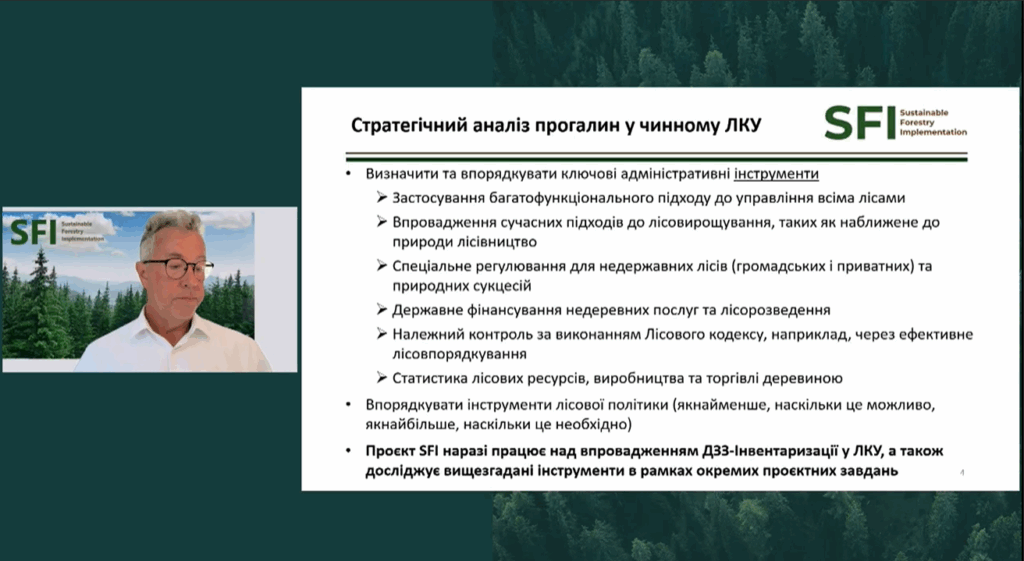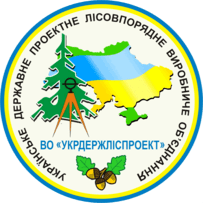On 24-25 June 2025, the National University of Life and Environmental Sciences of Ukraine (NULES) hosted a seminar to discuss the need for developing of a new Forest Code of Ukraine and the eliminating gaps and inconsistencies with EU forest regulations. The event was held as part of the EU project “Integrated, Competitive and Sustainable Value Chains in Agriculture, Fisheries and Forestry”, implemented by the Food and Agriculture Organization of the United Nations (FAO). Politicians, government officials, scientists and experts expressed broad support for the process of preparing a new forest law, noting the need to introduce modern European approaches to Ukrainian forestry while taking into account the current challenges of wartime and economic restoration.
In introductory session the political expectations from the process of new Fores Code elaboration were widely stated:
Volodymyr Otchenashko, Head of the Research Department of NULES, on behalf of Rector Vadym Tkachuk, focused on the current challenges for Ukraine, and stressed that despite the challenges, European integration tasks cannot be postponed for the post-war period. Otchenashko also elaborated on the discussion around the understanding of forests – whether it is ecosystem functions, economic use, or environmental protection.
Oleg Nemchinov, Minister of the Cabinet of Ministers of Ukraine, emphasized the need to take into account the views of all stakeholders in the development of the new version of the Forest Code.
Oleg Bondarenko, Chairman of the Verkhovna Rada Committee on Environmental Policy and Nature Resources, outlined the challenges facing the forestry sector: destruction and loss of functions of huge forest areas due to the war, climate changes, self-forested areas that are not properly transferred to forest users, the need to harmonize legislation with the EU.
Oleksandr Semenets, Deputy Minister of Environmental Protection and Nature Resources of Ukraine, focused on the European integration aspect and was confident that the forestry will receive an additional impetus for reform after screening of the environment and climate change section. Semenets also noted the importance of an article-by-article discussion of the provisions of the new version of the Forest Code.
Volodymyr Buchko, First Deputy Head of the State Forestry Agency stressed the need for digitalization in the forest sector.
Yuriy Bolokhovets, Director General of the State Enterprise “Forests of Ukraine”, criticized the tendency to increase bans and restrictions instead of effective use of forests.
Michael Wolf, EU Delegation to Ukraine, focused on EU philosophy on forests, – EU Forestry Strategy 2030 emphasizes the role of multifunctional forests. Wolf underlined the EU’s readiness to supports Ukraine’s ambition to develop a modern, coherent Forest Code.
Yulia Ovchynnykova, Head of the Subcommittee on Forestry of the Verkhovna Rada Committee on Environmental Policy and Nature Resources, stressed the importance of clear understanding of modern paradigm of the new forest code, and emphasized the need for balanced solutions that will ensure conservation, protection and restoration in accordance with European legislation.
Dmytro Zaruba, First Deputy Head of the State Environmental Inspection, noted that the amendments to the Forest Code on conservation of self-growing forests showed effectiveness in the practice and is important for the implementation of the EUDR regulation.
Mykhailo Malkov, FAO Policy Advisor in Ukraine, pointed FAO believes that the workshop will contribute to the harmonization of forestry legislation with EU standards and will be an important step in the implementation of the State Forestry Management Strategy until 2035.
During the policy panel discussion, Volker Sasse, SFI-Project leader, welcomed the initiative by EU COM and FAO to adjust the FCU to modern standards, namely EU requirements. In light of this he pointed to sufficient transparency of the approach and required consideration of international experiences. The starting point for such a venture should be a strategic gap analysis of the current Forest Code of Ukraine (FCU), where the SFI-Project aims to work on currently. Further, the SFI-Project is working on various subjects with regard to forest policy in Ukraine, such as NFI and RS-Inventory as well as the administration of non-state forest land. In this context he requested a closer coordination of international donor activities.
In his statement Sasse mentioned key forest policy issues and institutions to be addressed during any review of the FCU. He also offered a commenting by a German forest policy expert of any draft FCU developed by the FAO-Project to be implemented. He also drew attention to a set of forest policy documents, e.g. the Federal Forest Law of Germany.
SFI-Project organises currently a Study Tour to Germany in order to provide German experiences in forest policy decision making.
Afterward, on the forest code’s chapter-by-chapter discussion Vitaliy Storozhuk, National Coordinator of SFI-Project, proposed to simplify the functional division of forests and combine the designation of specially protected forest areas with division of forests into sub-categories.
Also Oleh Storchous, National Expert of SFI-Project, proposed to add the regulation of RS-Inventory into the Forest Code for purpose of monitoring of forest resources for whole country.
The two-days meeting revealed that political support for the process of preparing a new Forest Code requires the general discussion to be transformed into painstaking work by a team of lawyers and foresters, with the broad involvement of international experts, which should begin with a “landscape analysis” of all national forest legislation and related areas of law.


